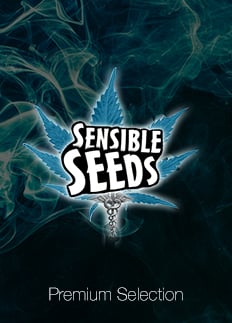Return to medical conditions page
What is multiple sclerosis
Multiple sclerosis, or MS, is a condition that affects the central nervous system. This is comprised of the brain, the spinal cord, and a complex network of neurons that send and receive information to all parts of the body. This system is vitally important because it monitors and synchronises internal organ function by responding to changes outside the body. Nobody knows exactly what causes MS but what appears to happen is that the body has an abnormal immune activity (perhaps to a cough, cold, flu or other infection) that causes inflammation of the nerve fibres in the brain and spinal cord. This destroys the nerves’ protective covering (known as myelin). If you think of exposed wiring, this is similar to what happens to the nerve fibres. The nerve fibres are stripped, either partially or completely, leaving scars known as lesions or plaques. Once the coating is destroyed, the patient suffers a range of symptoms.
-
 Click here to see our strains that could help multiple sclerosis
Click here to see our strains that could help multiple sclerosis
Spliff - Nevilles Haze - http://www.sensibleseeds.com/spliff-seeds-gold-line-nevilles-haze-feminised.html
Dutch Passion - Blueberry - http://www.sensibleseeds.com/dutch-passion-blueberry-feminized.html
Humboldt - Bubba Kush - http://www.sensibleseeds.com/humboldt-seeds-organisation-bubba-kush-feminized.html
Apothecary - Bubba Kush http://www.sensibleseeds.com/apothecary-genetics-98-bubba-kush-regular.html
GreenHouse - Bubba Kush - http://www.sensibleseeds.com/greenhouse-bubba-kush-feminised.html
Rokerij - Sour Diesel - http://www.sensibleseeds.com/greenhouse-bubba-kush-feminised.html
Reserva Privada - Sour Diesel - http://www.sensibleseeds.com/reserva-privada-sour-diesel-fem.html
Devils Harvest - Strawberry Sour Diesel - http://www.sensibleseeds.com/devils-harvest-strawberry-sour-diesel-fem.html
CBD Seeds - Domina - http://www.sensibleseeds.com/cbd-seeds-domina-feminised.html
Sensi Seeds - Black Domina - http://www.sensibleseeds.com/sensi-seeds-black-domina-regular.html
World of Seeds - Afghan Kush x Black Domina - http://www.sensibleseeds.com/world-of-seeds-afghan-kush-x-black-domina-feminized.html
Symptoms of multiple sclerosis (MS)
Symptoms of multiple sclerosis vary depending on the person. Symptoms are specific to each sufferer, depending upon which part of the central nervous system has been affected. The most frequent symptoms can include: muscle spasms; tremors; mood swings; difficulty to control balance and bladder function; and even speech and eyesight failure. A frequently noted symptom is spasticity, which causes pain and loss of function among multiple sclerosis sufferers.
MS is generally diagnosed in people between the ages of 20 and 40. Around 100,000 people in the UK have MS, with 350,000 MS sufferers in the US. The condition affects three times as many women as men and can be both painful and debilitating. Once diagnosed unfortunately MS stays with you for life, but treatments and specialists can help you to manage the symptoms. Multiple sclerosis is a relapsing and remitting disease, meaning that symptoms come and go. Therefore treatment tends to be symptomatic, focusing on problems as they occur.
There are over forty medicines listed by the Multiple Sclerosis Society that are commonly used by multiple sclerosis patients. Unfortunately quite a few of these carry important side effects, notably, Klonopin, Dantrium, Baclofen, Zanaflex, and Valium. Dantrium, for example is a muscle relaxant manufactured by Proctor and Gamble that has been linked to cancer and non-cancerous tumours. Other side effects include diarrhoea, giddiness and nausea, blurred and double vision, chills, fever, headache, speech difficulties, anxiety, weakness and drowsiness. Baclofen has side effects for multiple sclerosis patients that can include high fever, an altered mental state and worse spasticity and muscle rigidity. Overdose can lead to coma and death.
Cannabis, by comparison, has only mild side effects. Medical marijuana for multiple sclerosis can provide relief from many of the most common symptoms.
How can medical marijuana treat MS?
A number of studies have suggested that medical marijuana can have positive effects on MS. Medical marijuana for multiple sclerosis can be used specifically as an alternative treatment for the motor systems of the central nervous system. These motor systems affect tremors and spasticity, and some medical marijuana patients have identified that medical marijuana does indeed ease symptoms. Many multiple sclerosis patients have reported that cannabis has had a profound impact on their muscle spasms, tremors, balance, bladder control, speech and eyesight. In fact, some wheelchair bound multiple sclerosis patients have recounted how they can walk without help when they have smoked cannabis.
Medical marijuana for multiple sclerosis has also been shown to positively affect the immune function, reducing the autoimmune attack that is thought to be the underlying destructive process in multiple sclerosis. For example, cannabinoids (whole cannabis extract) are found naturally in medical marijuana. These have anti-inflammatory assets and so are good to improve immune suppression among MMJ patients because they turn off a part of the immune response, easing inflammation and hyperactivity of immune cells, and this in turn is thought to halt of slow the damage caused to the myelin by immune cells, providing relief for sufferers of multiple sclerosis. Medical marijuana patients have seen great benefits.
Laboratory testing has clearly demonstrated that cannabinoids measurably lessen multiple sclerosis symptoms and can halt the progression of the disease. The British Medical Association has therefore cleared the way for the use of synthetic cannabinoids in medicine, namely Nabilone and Dronabinol. These will eventually be officially licensed for use in multiple sclerosis and other spastic disorders. However these synthetic cannabinoids do not deliver the same therapeutic benefits as the natural herb.
There is plenty of published evidence that demonstrates that the use of medical marijuana in multiple sclerosis patients can only bring positive benefits. GW Pharmaceuticals have published findings that demonstrate that the cannabis preparation, Sativex, is very good for relief of pain. They also noted improvements in spasm frequency, bladder control, spasticity and sleep among MMJ patients. In the UK, another published study concluded that the benefits of cannabinoids for the treatment of MS were as strong as for any other available pharmaceutical agent. The London Institute of Neurology have also stated that cannabis use for MMJ patients helps them to manage symptoms, slow down the neurodegenerative processes, and alleviate chronic disability.
Of course one of the biggest advantages for medical marijuana patients is its safety. Medical marijuana for multiple sclerosis does not affect major physiological functions and you cannot overdose. It is less addictive than many prescription drugs that are commonly used as muscle relaxants and analgesics. The biggest effect is on the lungs because of smoking but vaporizers are very useful here.
Sensible Seeds are contantly updating the list of medical marijuana strains suitable for multiple sclerosis ; If you have tried a cannabis strain not on the list which helped you, please do let us know.
Spliff - Nevilles Haze - http://www.sensibleseeds.com/spliff-seeds-gold-line-nevilles-haze-feminised.html
Dutch Passion - Blueberry - http://www.sensibleseeds.com/dutch-passion-blueberry-feminized.html
Humboldt - Bubba Kush - http://www.sensibleseeds.com/humboldt-seeds-organisation-bubba-kush-feminized.html
Apothecary - Bubba Kush http://www.sensibleseeds.com/apothecary-genetics-98-bubba-kush-regular.html
GreenHouse - Bubba Kush - http://www.sensibleseeds.com/greenhouse-bubba-kush-feminised.html
Rokerij - Sour Diesel - http://www.sensibleseeds.com/greenhouse-bubba-kush-feminised.html
Reserva Privada - Sour Diesel - http://www.sensibleseeds.com/reserva-privada-sour-diesel-fem.html
Devils Harvest - Strawberry Sour Diesel - http://www.sensibleseeds.com/devils-harvest-strawberry-sour-diesel-fem.html
CBD Seeds - Domina - http://www.sensibleseeds.com/cbd-seeds-domina-feminised.html
Sensi Seeds - Black Domina - http://www.sensibleseeds.com/sensi-seeds-black-domina-regular.html
World of Seeds - Afghan Kush x Black Domina - http://www.sensibleseeds.com/world-of-seeds-afghan-kush-x-black-domina-feminized.html
Return to medical conditions page
Sensible Seeds source all their medical marijuana information from related MMJ sites on the web. This information comes from reliable sources though we cannot be 100% certain of its accuracy. Medical Marijuana strains listed for helping certain medical conditions are again sourced from other medical marijuana web sites and are not officially approved by any government organisation. Recommended strains usually come from individuals that discovered that a particular strain helped them for a particular condition though this may vary from person to person. Our Medical information serves only as a guideline and customers are advised to make their own independent research. Sensible Seeds are not qualified medical practitioners and source any medical info from information already present on the internet. We cannot accept any liability for any issue arising for information provided on our website.
The Service provides general information about medical conditions and treatments and is not intended to be a substitute for professional medical advice, diagnosis, or treatment.
You must not rely on the information provided by this Service as an alternative to medical advice from your doctor or other professional healthcare provider. If you have any specific questions about any medical matter you should consult your doctor or other professional healthcare provider. If you think you may be suffering from any medical condition you should seek immediate medical attention. You should never delay seeking medical advice, disregard medical advice, or discontinue medical treatment because of information provided by this Service.
Reliance on any information provided by Sensible Seeds employees, other parties privy to the Service, or other users of the Service is solely at your own risk.









